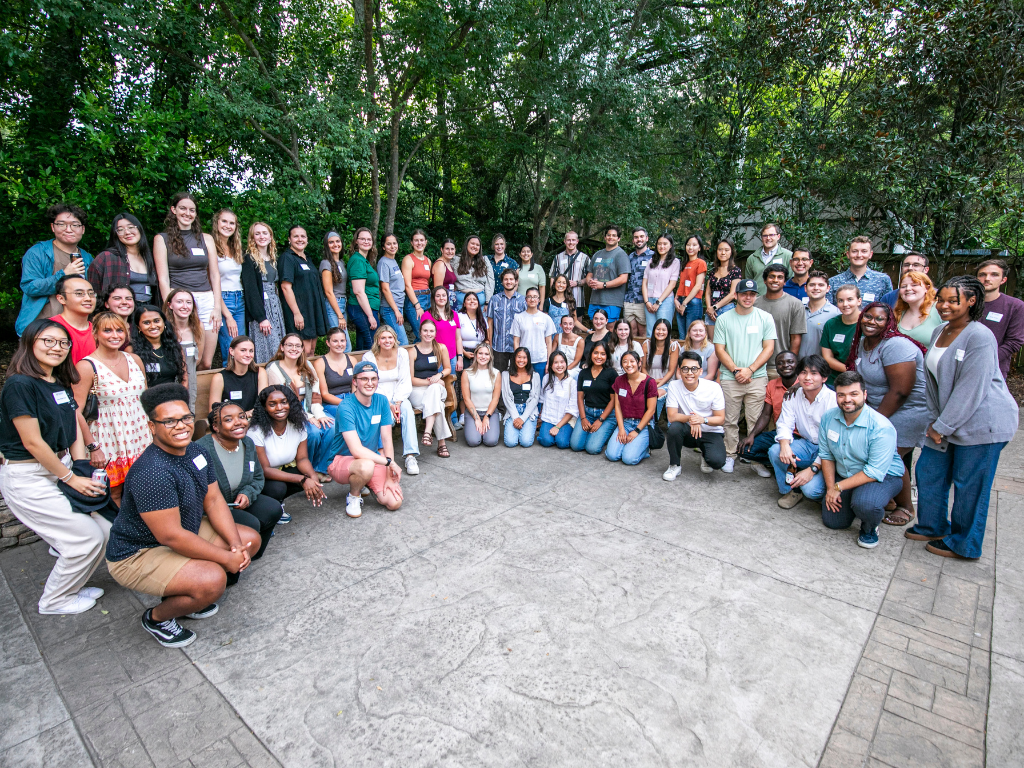Featured
-

Hwang joins VUMC and the Center for Computational Systems Biology
Tae Hyun Hwang, a national leader in the use of AI to improve cancer diagnosis and treatment, will lead a new “Molecular AI” initiative within Vanderbilt University Medical Center. He was jointly recruited by the Department of Surgery and the newly established Center for Computational Systems Biology led by Ken Lau. Read MoreJan. 21, 2025
-

Warren Center for Neuroscience Drug Discovery researchers create new compound to potentially treat negative and positive symptoms of schizophrenia
Researchers from the Warren Center for Neuroscience Drug Discovery, in collaboration with Boehringer Ingelheim, developed a compound that can treat both negative and positive symptoms of schizophrenia in rodents. The compound holds promise as an investigational tool and an inspiration for novel schizophrenia therapies. Read MoreJan. 16, 2025
-

Center for Computational and Systems Biology applies advanced technology to biological research
The Center for Computational and Systems Biology, launching at Vanderbilt University in early 2025, will focus on analyzing vast amounts of data to look for new ways to tackle human diseases and conditions. Read MoreJan. 16, 2025
-

Doug Mitchell, a generational leader in chemical biology, named professor of biochemistry and chemistry and director of the Vanderbilt Institute of Chemical Biology
A leading chemical biologist working on ribosomally synthesized and post-translationally modified peptides, Doug Mitchell has joined the School of Medicine Basic Sciences as the William Kelly Warren Sr. Professor of Biochemistry and director of the Vanderbilt Institute for Chemical Biology. He also has been named professor of chemistry. Read MoreJan. 1, 2025
-

School of Medicine Basic Sciences: 2024 in review
As 2024 comes to a close, we take a look back at the accomplishments and contributions to science and society made by School of Medicine Basic Sciences community members throughout the past year. The efforts of our faculty, trainees, staff, and collaborators have resulted pioneering discoveries that tangibly benefit society. Read MoreDec. 20, 2024
-

School of Medicine Basic Sciences: 2024 in review
As 2024 comes to a close, we take a look back at the accomplishments and contributions to science and society made by School of Medicine Basic Sciences community members throughout the past year. The efforts of our faculty, trainees, staff, and collaborators have resulted pioneering discoveries that tangibly benefit society. Read MoreDec. 17, 2024
-

Vanderbilt CTTC honors three SOM Basic Sciences faculty as newly inducted Master Innovators
Vanderbilt University has announced this year’s Master Innovators including Carrie Jones, Colleen Niswender, and Alex Waterson. The recognition, presented by the Center for Technology Transfer and Commercialization, honors faculty whose groundbreaking research has been translated into transformative innovations, advancing their fields and making a significant impact on society. Read MoreDec. 5, 2024
-

Vanderbilt awarded up to $46M through ARPA-H to develop tools against alphaviruses
Jens Meiler, Distinguished Research Professor of Chemistry and Kevin Schey, Stevenson Chair and professor of biochemistry, are two Vanderbilt collaborators on the project that brings together specialists in virology, structural biology and clinical research to tackle the complex challenge of vaccine development. Read MoreDec. 2, 2024
-

Vanderbilt researchers find evidence that the hunger hormone leptin can direct neural development in a leptin receptor–independent manner
Researchers from the lab of Richard Simerly have uncovered the first example of activity-dependent development of hypothalamic neural circuitry. The work also suggests a novel role for the hunger hormone leptin in specifying the development of neural circuits involved in autonomic regulation and food intake. Read MoreNov. 25, 2024
-

Ken Lau and Eunyoung Choi named 2024 Stanley Cohen Innovation Fund awardees
Eunyoung Choi and Ken Lau receive funding for novel cancer research, which may ultimately result in cancer detection and treatment options for patients. The fund supports early-stage, high-risk high-reward research projects and honor Cohen’s seminal discoveries, which led to the invention of many anticancer drugs used today. Read MoreNov. 21, 2024